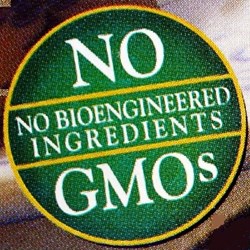New, Non-GMO Crops Could Give Companies A Leg Up On The Competition

By Sam Lewis

There is no middle ground when it comes to genetically modified organisms. One side says they’ll kill the world, while the other side says they’ll save it. However, new varieties of crops are being labeled as non-GMO are becoming available, and, according to experts, the companies selling them to retailers may be headed for big profits
According to Mary Beth DePersio, VP of marketing at World Finer Foods, “In the last year, we have seen a surge in the shift to non-GMO offerings.” DePersio continues, “If your question is, ‘what is driving companies to come up with non-GMO solutions,’ I believe it's the desire to be successful in the industry. This may not be the most-ethical reason, but the end game is a healthier environment and healthier food consumption.”
Many consumers believe that non-GMO products are not only better for them, but better for the planet. This belief is the motivation for many research groups and food companies to pursue non-GMO products. In the coming months, a new vegetable will be available in American groceries for the first time since 1998. It will come in the form of British firm Tozer Seeds’ kalette — a mixture of Brussels sprouts and kale. There is no denying that the company hybridized the two plants to create its new product, however, the company used “traditional breeding methods” to create it. This idea is easing the minds of many aboard the anti-GMO train. “In case you’re wondering, hybrid vegetables are not the same as genetically modified crops,” writes Kimi Harris, a blogger for the Mother Nature Network. “While genetically modified vegetables have been changed or tampered within their DNA, hybrid vegetables are created by simply cross breeding compatible plants.”
This proclamation may not hold water with all anti-GMO critics, but this idea attached to kalette will likely give it more credibility than other vegetables made by reassigning plant genomes. Tozer is able to showcase kalette in a different light than competing GMO crops and that feature may be the key for other companies to gain sales in coming years.
Researchers are taking steps forward to improve how plants are altered, allowing changes to be viewed outside the realm of genetically modified. On Sept 15, Washington State University announced they discovered “the most famous wheat gene” that will unblock the “way for non-GMO breeding.” However, by utilizing the new discovery, engineers will still be moving “valuable genes from other plants to wheat.” This, to many onlookers, is in fact genetic modification. “Crossing one species of plant with another species of plant is still genetically modifying an organism,” says international business lawyer and author Kenneth Eade. “Just because they aren't injecting the genes of a goose into the genes of a corn cob doesn't mean that it’s not GMO.”
Despite criticism, creating and selling products as non-GMO could be a successful plan for food companies. Dr. Kath Gruver furthers earlier ideas from DePersio, “Let's be honest, companies want to make money. And the way to do that is to fill a demand, give the consumer what they want. When the labeling started to fail, many companies started labeling that things were NOT GMO.” Gruver continues, “They are catering to a market, [that] for good or bad, is anti-GMO. I think these companies with the new non-GMO products will be met with great success.”
